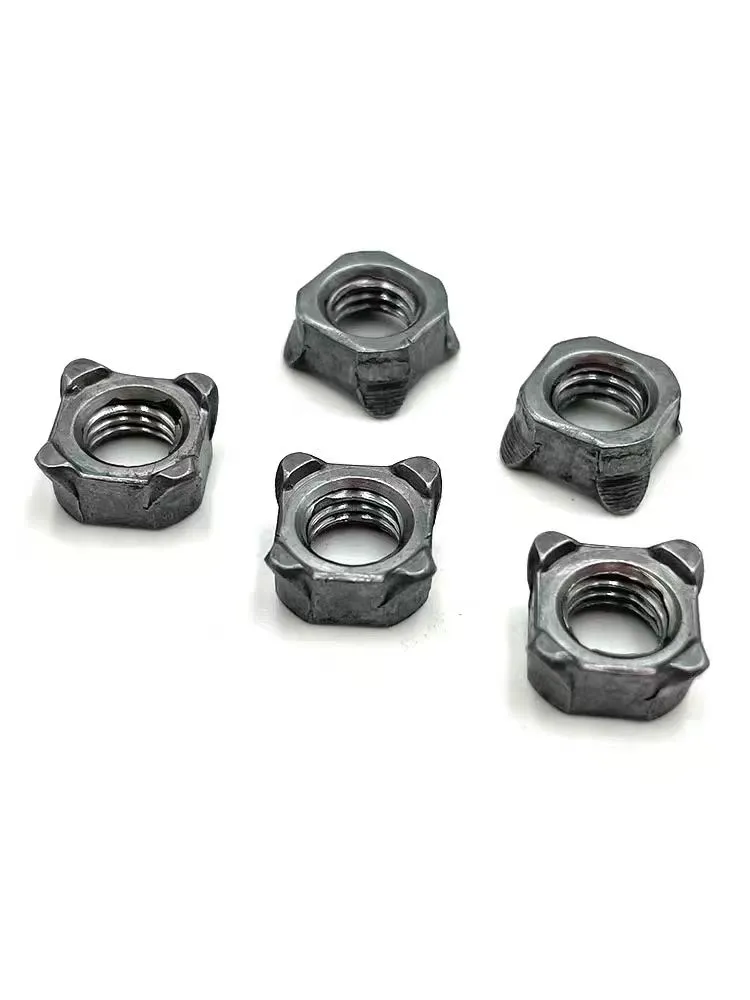

High Strength B7 Stud Bolts for Industrial Applications with 2H Grade Certification
Aug . 18, 2024 12:04 Back to list
High Strength B7 Stud Bolts for Industrial Applications with 2H Grade Certification
Stud Bolt B7 Understanding the 2H Grade High Strength Industrial Fasteners
In the realm of industrial manufacturing and construction, fasteners play a crucial role in ensuring the structural integrity and durability of assemblies. Among the various types of fasteners, stud bolts are particularly significant due to their versatility and strength. This article delves into stud bolt B7, a high-strength fastener classified under the 2H grade, and its vital applications in various industries.
Firstly, let’s clarify what stud bolts are. Stud bolts are cylindrical rods with threads on both ends, designed to be inserted into threaded holes or paired with nuts. Their design allows for greater adaptability in fastening two components securely, making them widely used in mechanical assemblies, piping systems, and heavy machinery.
The B7 stud bolt is a specific grade under the ASTM A193 standard, which governs the specifications for bolting materials used in high-temperature or high-pressure applications. The B7 alloy steel stud bolts are known for their strength and resistance to tensile stress, with a minimum yield strength of 105,000 psi and a minimum tensile strength of 125,000 psi. This makes them ideal for applications where the integrity of the assembly is subjected to heavy loads or extreme conditions.
An important feature of the B7 stud bolt is its chemical composition, which typically consists of chromium-molybdenum alloy steel. This alloying gives the B7 stud bolt its characteristic mechanical properties, including enhanced toughness and ductility. Additionally, the presence of chromium improves corrosion resistance, making these fasteners suitable for use in harsh environments such as chemical processing plants, oil refineries, and power generation facilities.
stud bolt b7, 2h grade high strength industrial fasteners

When it comes to applications, B7 stud bolts are often employed in the oil and gas industry, particularly in the construction of piping systems, where they are subject to high pressures and temperatures. They are also used in the construction of heavy equipment, pressure vessels, and boilers, proving their reliability in demanding circumstances. The ability to withstand such extreme conditions means that the failure of a stud bolt can lead to catastrophic results, making the selection of B7 studs imperative for safety and operational efficiency.
Another significant aspect of B7 stud bolts is their interchangeability with other grades. For instance, B7 stud bolts can be paired with various nuts, including B7 nuts, which are also manufactured from chromium-molybdenum steel, ensuring compatibility and maintaining the integrity of the assembly. Furthermore, the use of a flat washer in conjunction with the stud bolt helps distribute the load evenly and provides additional protection against damage during installation.
The installation of B7 stud bolts requires careful attention to detail, as improper installation can lead to inadequate fastening. It is crucial to follow the manufacturer’s guidelines regarding torque specifications and installation procedures. Utilizing a torque wrench to achieve the recommended tightening force ensures that the bolt reaches its optimum performance without being over-stressed.
In conclusion, the stud bolt B7 represents a robust and reliable option among high-strength industrial fasteners. Its production from high-grade alloy steel and its compliance with rigorous standards render it an indispensable component in industries ranging from oil and gas to construction. By ensuring the correct use and installation of B7 stud bolts, engineers and technicians can foster safety, efficiency, and longevity in their projects, ultimately contributing to the success of their operations. As industries continue to evolve and demand for stronger, more resilient materials grows, fasteners like the B7 stud bolt will remain at the forefront of engineering solutions.
Latest news
-
High-Strength Hot Dip Galvanized Bolts - Hebei Longze | Corrosion Resistance, Customization
NewsJul.30,2025
-
Hot Dip Galvanized Bolts-Hebei Longze|Corrosion Resistance&High Strength
NewsJul.30,2025
-
High-Strength Hot-Dip Galvanized Bolts-Hebei Longze|Corrosion Resistance&High Strength
NewsJul.30,2025
-
Hot Dip Galvanized Bolts-Hebei Longze|Corrosion Resistance&High Strength
NewsJul.30,2025
-
Hot Dip Galvanized Bolts - Hebei Longze | Corrosion Resistance, High Strength
NewsJul.30,2025
-
High-Strength Hot Dip Galvanized Bolts-Hebei Longze|Corrosion Resistance, Grade 8.8
NewsJul.30,2025

